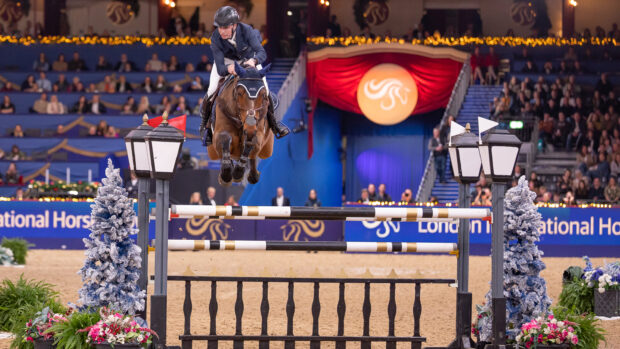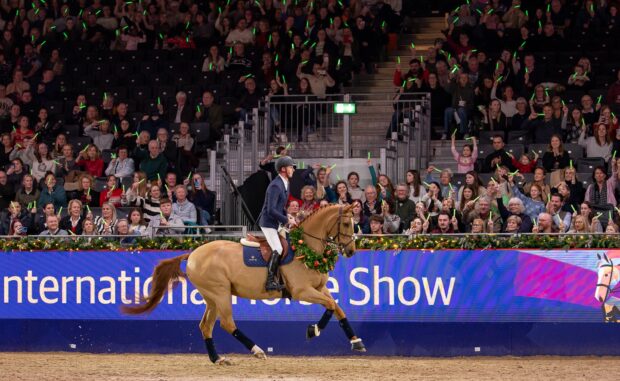The FEI tribunal has ruled an endurance trainer’s suggestion that a horse tested positive for beta blockers at a UK event owing to a groom being on heart medication, was “weak, to say the least”.
Feline X tested positive for banned substance atenolol, a beta blocker used for the treatment of cardiac arrhythmias, hypertrophic cardiomyopathy and obstructive cardiac disease, following blood and urine samples taken at the CEI*80 at Euston Park on 16 June 2019. A banned substance is a substance deemed by the FEI to have no legitimate use in competition horses and/or have a high potential for abuse. Banned substances are not permitted for use in competition horses at any time.
On 26 August 2019 the FEI provisionally suspended Feline X’s rider Pane Singh Amar Singh (the person responsible) and trainer Fadhl Manea Saleh Al Mathil (the additional person responsible).
In December 2019 Mathil submitted to the FEI that he did not understand the positive finding, and upon receipt of the notification he “analysed the situation” with his team to determine how it could have occurred. Following an investigation it “appeared” one of his grooms, who is in contact with horses and their feeding, has a heart condition and needs to take regular antihypertensive pills. He added this was not an “excuse”, but it was the only option he could think of that could have caused the positive sample. Singh did not provide any submission to the FEI with regard to the allegations.
The case was submitted to the FEI Tribunal on 29 March 2021. The FEI submitted to the Tribunal that in endurance, trainers by definition take decisions with regard to horses they are registered for, and Mathil is presumed to be the person responsible for taking “relevant decisions on the conditioning of the horse for the competition”.
Under anti-doping rules it is the FEI’s burden to establish all elements of the rule violation to the satisfaction of the Tribunal. As Feline X tested positive for a banned substance, this constituted “sufficient proof” of the violation and Mathil or Singh did not dispute the presence of the atenolol in the horse’s system. While Mathil did submit the sample could have resulted from human-horse contamination, he did not provide any evidence supporting this allegation such as the name and testimony of the groom, or documentation evidencing the groom‘s alleged medical condition.
“No document was provided to actually prove that it was indeed a human-horse contamination instead of voluntary doping. If we were to accept such concise, unsubstantiated and non-corroborated statement as a proof of human-horse contamination, then the whole anti-doping system, and efforts to eradicate doping in sport would be undermined,” said the FEI.
On 10 August 2021 the Tribunal ruled the FEI had sufficiently proven the offence under the anti-doping rules, and the Tribunal was “not convinced” Mathil or Singh had established the source of the banned substance on the balance of probabilities.
“The person responsible (PR) [Singh] did not submit any position, which in itself does not need any further explanations,” read the decision.
“As to the additional person responsible (APR) [Mathil], the Tribunal rules he failed to submit conclusive information and evidence, to prove that it was indeed through the medicines of his groom (or a third party) that the horse’s system was contaminated with atenolol. The APR’s explanations are weak, to say the least, and are not substantiated. Accepting a sole letter – without any supporting evidence, at all – as a fact is therefore not something admissible in the Tribunal’s view. Rather, it was the APR (and the PR)’s burden of proving how the prohibited substance entered the horse’s system. Both failed to prove how the prohibited substance entered the horse’s body.”
Singh and Mathil were banned for two years. The Tribunal took into account the pair had been provisionally suspended since 26 August 2019, and did not compete or train during the period of suspension, so the ban is in place until 25 August 2021. Both were fined 7,500 Swiss francs (£5,867) each.
Singh and Mathil can appeal the Tribunal’s decision to the Court of Arbitration of Sport within 21 days.
You might also be interested in:

Record ban for endurance rider who committed three doping offences in 12 months

Rider blames ‘cocktail’ of drugs in horse’s system on ‘unknown’ operation
The FEI stated that to accept a “simple statement” as proof would undermine the whole anti-doping system and efforts to

Subscribe to Horse & Hound magazine today – and enjoy unlimited website access all year round
Horse & Hound magazine, out every Thursday, is packed with all the latest news and reports, as well as interviews, specials, nostalgia, vet and training advice. Find how you can enjoy the magazine delivered to your door every week, plus options to upgrade your subscription to access our online service that brings you breaking news and reports as well as other benefits.




